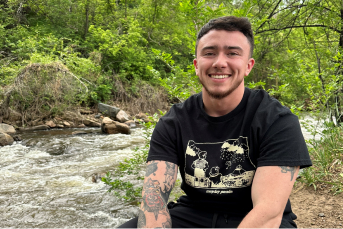
Disney Channel actor Cameron Boyce was a star in the making - until his tragic passing from Sudden Unexpected Death in Epilepsy (SUDEP) on 6th July 2019. Boyce, who starred in the Descendants franchise, was just 20 when he died.
Boyce’s death brought the issue of SUDEP in epilepsy to the attention of the world. A year after his death, take a moment to learn more about SUDEP.
Who was Cameron Boyce?
Cameron Boyce was a Disney Channel actor who got his break at eight years old, appearing in a Panic! At the Disco music video. He began acting in Disney movies before going on to star in the Descendants, a franchise about the children of notable Disney villains – he played Carlos de Vil, son of Cruella de Vil from 101 Dalmatians.
In an interview, Cameron’s parents Libby and Victor revealed that Cameron had his first seizure aged 16 and that he only had five seizures in his entire life – all of which occurred in his sleep.
After his death, Cameron’s parents launched The Cameron Boyce Foundation, a philanthropic organization which aims to fund research into SUDEP among other causes close to Cameron’s heart.
SUDEP facts: what did Cameron Boyce die of?
SUDEP is defined as: “when a person with epilepsy dies suddenly and prematurely and no reason for death is found”. SUDEP in epilepsy often occurs during sleep, either during or just after an epileptic seizure.
At present, scientists are still not sure exactly why people die from SUDEP although they believe it could be because of:
- Breathing problems: During a seizure, the person may pause their breathing (called apnea). If this goes on too long, they may not have enough oxygen in their blood
- Suffocation: Many people die from SUDEP in epilepsy during their sleep, so some researchers believe their airways get blocked by pillows or sheets
- Heart problems: Seizures may cause dangerous heart rhythms
Find out more: SUDEP in epilepsy
What are the risks of SUDEP in epilepsy?
SUDEP is relatively rare - it affects about 1 in every 1,000 people with epilepsy. Because scientists are not exactly sure why SUDEP happens, it is difficult to assess the risk of it happening to an individual.
However, evidence suggests that people with uncontrolled seizures, or who have frequent (more than once per year) tonic-clonic seizures, are at a higher risk.
The risk may be lower for people with:
- Other types of generalized seizures, like myoclonic or absence seizures
- People whose seizures are controlled by medicine or devices
SUDEP facts – can you reduce the risk?
According to the CDC, things that reduce the risk of SUDEP in epilepsy include:
- Taking medication correctly
- Avoiding excessive alcohol consumption
- Avoiding seizures triggers
- Discussing any changes in your seizure patterns with your healthcare professional
If you are concerned about SUDEP, speak to your healthcare professional to develop a personalized plan to reduce your risk.
Being aware of SUDEP in epilepsy
The tragic death of Cameron Boyce one year ago is a sad reminder of the risks facing people with epilepsy. Following Cameron’s death, his parents have continued to raise public awareness of epilepsy and SUDEP. Awareness, following your care plan, and reducing your risks are important steps in taking control of epilepsy.

















